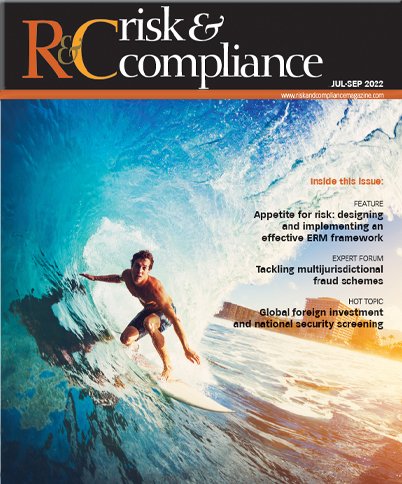TACKLING MULTIJURISDICTIONAL FRAUD SCHEMES
R&C: Could you provide an overview of recent trends in international fraud activity? To what extent has it become easier for fraudsters to obscure assets and move funds across borders through digital channels?
Liew: Due to the coronavirus (COVID-19) pandemic, the last couple of years have seen two key trends. With people working either from home or with a split-team arrangement, some fraud activities have gone unnoticed, even more so in a region as widespread and diverse as Asia. As there are fewer interactions, checks and balances have become slightly more challenging, and since international travel has not been possible, the detection and investigation of fraud by investigation teams has become more challenging. However, the difficulties arising from the pandemic also led to more creative ways of undertaking investigations. These may include making sure the various tools at the investigation team’s disposal are leveraged. It also means that in cases where the allegations are not fully formed, or there is no access to internal books and records or electronic devices, then the ability to conduct discreet intelligence-led investigations has become a key differentiator.
Gebauer: The events of the past two years have created global economic distress and placed strain on many industries. The pandemic, the conflict in Ukraine and the subsequent sanctions have amplified supply chain disruption and destabilised trading relationships. The geopolitical instability has caused market volatility – commodity prices are rising, inflation is soaring and many are bracing themselves for another global recession. History has shown that when economic survival is threatened, there is a heightened risk of corporates resorting to inappropriate practices, such as inflating earnings, manipulating revenue recognition or avoiding market disclosures.

